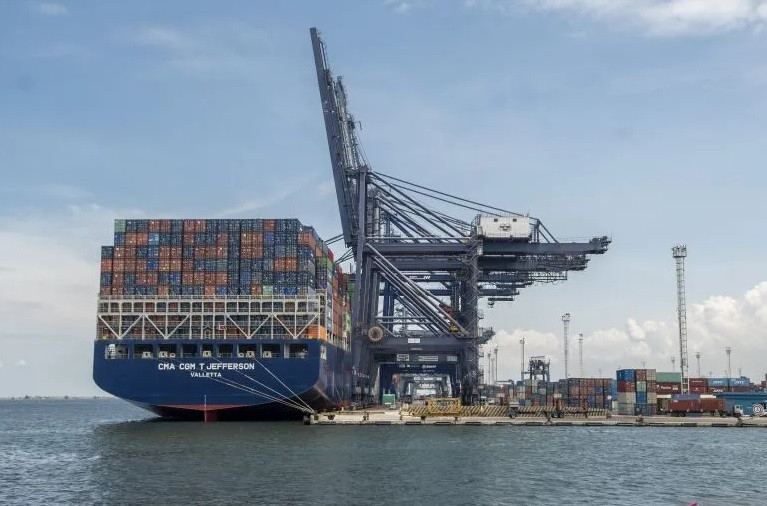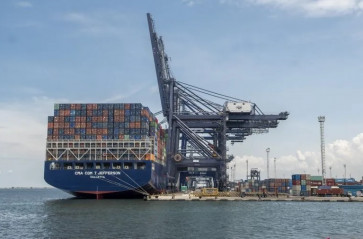Popular Reads
Top Results
Can't find what you're looking for?
View all search resultsPopular Reads
Top Results
Can't find what you're looking for?
View all search resultsGovt talks up incentives for exporters to keep earnings in RI
Change text size
Gift Premium Articles
to Anyone
 Daily workload: Containers are loaded onto a vessel at the Pelindo II Port in Tanjung Priok, North Jakarta, on Nov. 15, 2022. The country’s exports grew 26.07 percent year-on-year in 2022 to US$291.97 billion, up from $231.60 billion in 2021, according to Statistics Indonesia (BPS). (Antara/Muhammad Adimaja)
Daily workload: Containers are loaded onto a vessel at the Pelindo II Port in Tanjung Priok, North Jakarta, on Nov. 15, 2022. The country’s exports grew 26.07 percent year-on-year in 2022 to US$291.97 billion, up from $231.60 billion in 2021, according to Statistics Indonesia (BPS). (Antara/Muhammad Adimaja)
T
he government has highlighted longstanding tax incentives and other policies that seek to lighten the burden on exporters that keep their earnings in country, as it prepares to require high-value exporters to maintain foreign exchange deposits at home.
Bank Indonesia (BI) Governor Perry Warjiyo told reporters on Friday that the central bank allowed export earnings stored in a special time deposit account to be used as collateral for credit in rupiah and for currency swaps, should exporters need some rupiah in their accounts.
In addition, the central bank offered “competitive rates” for exporters’ earnings deposits, designed to be higher than those offered by foreign banks.
“We will release the revised or perfected [version] of the BI regulation, which actually has always been there, related to export earnings,” Perry told reporters in a press briefing.
Read also: New export receipt rules ‘mostly good’ but must not hamper cashflow
Speaking at the same briefing, Finance Minister Sri Mulyani noted that the government offered much lower tax rates on export receipts held in country than typical time deposits, which were taxed around 20 percent.
For instance, month-long foreign earnings time deposits were taxed at 10 percent, but the rate dropped to 2.5 percent for tenors of six months and none at all for tenors longer than that.

















